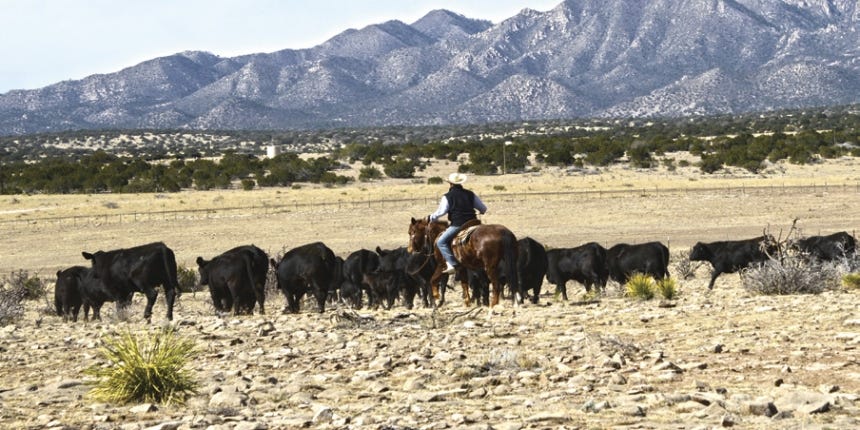The Agricultural Tax Exemption
Learn this technique to potentially save thousands of dollars on your property taxes each year!
As a real estate attorney focusing on land and ranch law in New Mexico, a question I always receive from land investors is about carrying costs, specifically property taxes. Often times, these investors will not be residents of New Mexico will divulge to me they are paying exorbitant property tax rates, sometimes $15,000 - $20,000 per year on small residential lots in their home states. Texas and other states on the east coast are notorious for these high property taxes, leading some potential ranch investors to get cold feet when it comes to purchasing large swaths of land.
Fortunately, in New Mexico, we have one of the lowest property taxes in the United States. According to the Tax Foundation, an independent nonprofit tax policy research organization, the effective property tax rate in New Mexico was 0.67% in 2021, the 16th lowest among the 50 states. Having a low property tax rate is great, but on a large enough piece of ranch-land, these property taxes can still add up. However, a savvy investor can further reduce the tax liability on their ranch by using the “Agricultural Tax Exemption”. Basically, if a property owner can show that their property is used primarily for agricultural purposes or grazing, the county will offer a special valuation to the property that is significantly lower than market value.
From the Grant County, NM website: “Property owners may apply for a special method of valuation for land if the land is used primarily for agricultural purposes or grazing. Should an owner qualify, the valuation of your land for property tax purposes will result in an assessment that is significantly lower than the market value of the property. The benefit to the property owner is a reduction of assessed valuation, thus resulting in lower taxes on the agricultural land. To be eligible for the special method of valuation for land used primarily for agricultural purposes, the property owner must demonstrate that the use of the land is primarily agricultural. The property owner must submit objective evidence that the land is used for the production of agricultural products, such as: plants, crops, trees, forest products, orchard crops, livestock, captive deer, elk, poultry or fish.”
This tax benefit is hugely beneficial to the potential land investor as it significantly lowers the carrying costs of holding a ranch or rural property. Now, I understand not every land investor wants to become an agricultural producer or a farmer, and may just want the land for recreation, vacation, or investment purposes. If this is the case, the solution is quite simple. I often recommend that clients consider leasing their land for cattle grazing. The benefits of this are multiple. First, the cattle being grazed on the land, if certain criteria are met, will qualify the property for an agricultural tax exemption. Second, the cattle grazing lease will provide cash flow to the owner. Third, the cattle grazing lease usually requires those in charge of the cattle to make repairs, fix fences, maintain roads, etc. Finally, in a rural setting, having someone on your property to ward off trespassers and perform maintenance is invaluable, especially for an absentee owner.
The agricultural tax exemption is one of the great perks to owning ranch or rural land as an investment. However, in order to qualify you need to follow the specific guidance set out by the tax authorities in your state. I encourage everyone looking to apply for an agricultural tax exemption to reach out to a ranch attorney and/or a qualified CPA with experience in applying for an Agricultural tax exemption.
____________________________________________________________________________
**As Always, this article was not financial or legal advice. For financial or legal advice, please consult with a licensed financial advisor or an attorney for your particular financial situation.**




